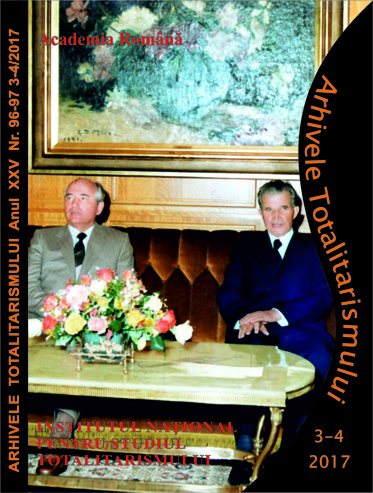Între constrângere externă şi
represiune internă: Opoziţia României
la „perestroika” sovietică
Between External Constraint and Internal Crackdown: Romania’s Non-Reaction to Soviet Perestroika
Author(s): Stefano BottoniContributor(s): Ana-Maria Cătănuş (Translator)
Subject(s): History, Economic history, Political history, Recent History (1900 till today), Post-War period (1950 - 1989)
Published by: Institutul National pentru Studiul Totalitarismului
Keywords: Romania; Ceauşescu; IMF; perestroika; intelligence; Gorbachev;
Summary/Abstract: This article analyzes the reaction of Nicolae Ceaușescu’s regime to the Soviet claim for an internal reform of the communist system. On the basis on a wide range of new archival evidence, I argue that it was firstly the debt crisis arisen in the early 1980s to push the Romanian communist regime toward self-isolation after its vaunted independence from Moscow had been jeopardized by the Western-imposed fiscal consolidation. In the meanwhile, Western countries began to show greater interest for the poor human rights record of the Ceaușescu regime. This multiple legitimacy crisis helps explain why the Ceaușescu regime reacted negatively after 1985 to the Mikhail Gorbachev’s plans to reframe existing socialism. As I am in going to analyze in the second part of the chapter, the Romanian leader looked with suspicion to what he perceived as an entangled (Western and Eastern) threat to his rule. It was not an ideologic commitment, but rather the fear of being overthrown by a Soviet-led conspiracy to make him so vocally unreceptive of perestroika.
Journal: Arhivele Totalitarismului
- Issue Year: XXV/2017
- Issue No: 3-4
- Page Range: 152-171
- Page Count: 20
- Language: Romanian
- Content File-PDF

